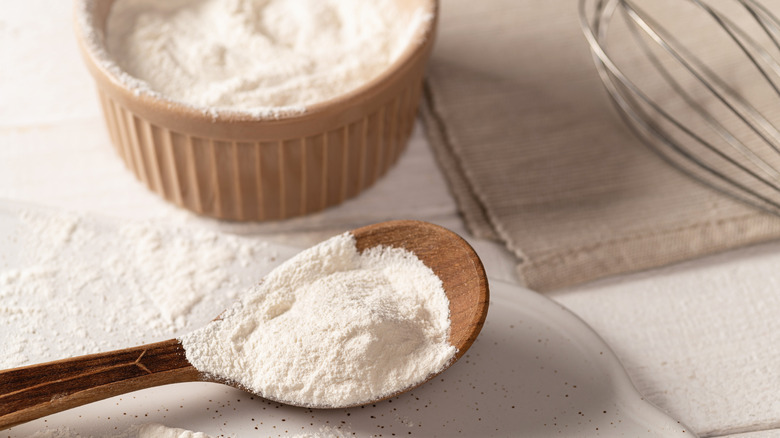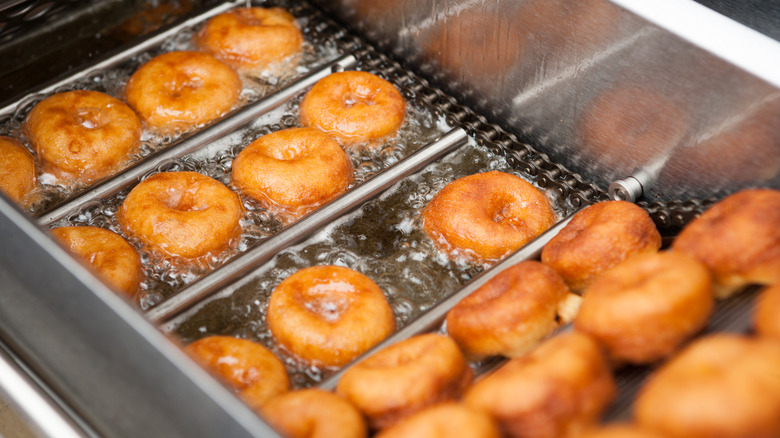The Difference Between Single And Double-Acting Baking Powder
Imagine you're ready for your next baking adventure, but you suddenly encounter a problem. The recipe before you calls for single-acting baking powder, yet you only have the double-acting variant at home. This makes you wonder: Can one be swapped for the other, and what distinguishes the two?
The primary difference lies in the number and timing of the gas-producing reactions. Single-acting baking powder triggers a single, immediate reaction upon mixing with liquid, forming gas bubbles from carbon dioxide that give your batter its initial rise. This one-time reaction is ideal for light, quickly-baked goods like pancakes or commercial donuts. With single-acting baking powder, it's typically advised to add it last and to bake or cook the dish immediately after mixing.
On the other hand, double-acting baking powder undergoes two distinct reaction stages. The first reaction occurs upon moistening in the batter, and the second (gas bubble formation) occurs when heated. This dual-phase action suits denser batters or doughs, such as cookies, needing rest before baking or when immediate baking isn't possible.
One baking powder is perfect for home use, the other for commercial use
While these powders are not directly interchangeable, careful adjustments can help. You might use the same amount if the recipe requires single-acting powder and you only have double-acting. However, this swap could affect your bake's texture, particularly in recipes relying on a single, quick rise. For instance, the Vietnamese honeycomb cake (or bánh bò nướng), famous for its beautiful inner tunnels (or honeycomb structure), often calls for single-acting baking powder. So, alternatively, you can try making homemade single-acting baking powder with a 3:1 ratio of cream of tartar to baking soda.
For home bakers, who might face interruptions or require flexibility in their cooking schedule, having double-acting baking powder is typically sufficient. It's typically more accessible in stores and supermarkets than its single-acting counterpart. Single-acting baking powder generally is better suited for commercial kitchens and bakeries. In a professional setting, where cakes can be immediately put into a preheated oven as soon as they're mixed, or donuts can be fried straight away, the immediate reaction of single-acting baking powder can be an advantage, providing more control over the texture and rise of the baked goods.

